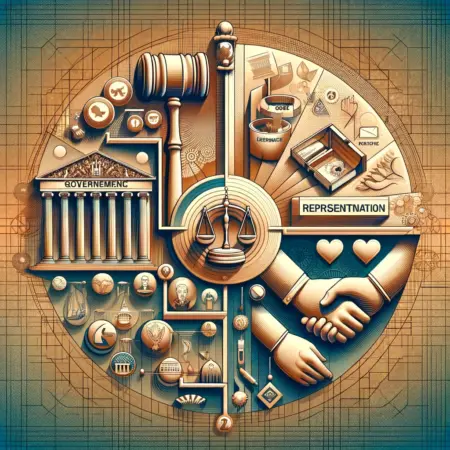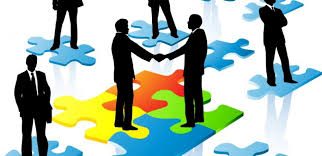Functions of Political System are being discussed in this article.The following are six of Almond’s functions that we believe the student will find useful.

1. Recruitment
It involves filling new roles or jobs, replacing individuals, and promoting individuals to new positions. Whether a political system can maintain itself and adapt to new challenges depends in great measure on who occupies important roles or positions (presidents, members of congress, diplomats, military officers, financial experts) and how they reached (were recruited) to these positions or offices.
2. Socialization
It is the shaping of attitudes and beliefs. As circumstances change, political attitudes may be shaped appropriately, maintained, or changed. Socialization occurs among the general population as well as among those who oc- cupy the elite political positions.
3. Interest articulation.
It occurs when individuals or groups request/demand that government change, continue a specific policy. or take no action (do not introduce gas rationing). These demands often are associated with promise of political support (vote, financial contribution, work for an individual or political party). In a democracy. this function is performed by a large number of independent groups or individuals. In a more authoritarian system, interest articulation may be limited to elite groups of landowners, industrialists, military officers, and the leaders of the ruling political party.
4. Interest aggregation.
It occurs when demands are combined or aggregated into a smaller number of policy alternatives. This activity often is associated with political parties who try to absorb, adjust, or compromise numerous demands in order to build a broad coalition of electoral support.
5. Policy making is the rule-making process in the political system.
This is the authoritative setting of official objectives. Every political system has a set of rules that determines what institutions decide policy. In Great Britain it is principally the elected prime minister and the cabinet: in the Soviet Union it is a few people on the Politburo: in a tribal society it may be a council of elders.
6. Policy implementation is the carrying out of policy. Often these policies are carried out through Civil bureaucracies or the military. As we have already seen, policy implementation may not be successful. Declaring a policy does not mean it will be implemented. For example, over 50 political systems have established comprehensive land-reform programs since the end of World War II. Only a handful of these programs (in Tawan. Japan, South Korea) have actually distributed land to the peasant and raised the rural standard of living, The remainder, for one reason or another, did not succeed.
7. Political communication refers to the flow of information dealing with politics including face to face contacts within nonpolitical groups such as the family, within political parties, interest groups. legislatures, political executives. the civil service and the mass media. It is not a separate function but precedes and is present in all of the above functions.
A political system comprises various functions essential for the governance and organization of a society. Below is a guide in tabular format outlining the key functions of a political system:
| Function | Description |
|---|---|
| Lawmaking | The creation of rules and regulations that guide the conduct of the state and its citizens. |
| Law Enforcement | Implementation and enforcement of the laws to maintain order and protect the rights of individuals. |
| Judicial Functions | Resolving disputes, interpreting laws, and administering justice. |
| Representation | Reflecting the interests and needs of different segments of society in the political process. |
| Political Socialization and Recruitment | Educating citizens about politics and recruiting new members for political roles. |
| Policy Making | Decision-making processes that create policies to address public issues and problems. |
| Interest Articulation | Expressing the needs and demands of different groups to the political system. |
| Interest Aggregation | Merging different interests and demands into policy proposals or political programs. |
| Legitimation | Providing legitimacy to the political system through laws, elections, and political processes. |
| Communication | Disseminating information between the government and the public, and facilitating dialogue among different groups. |
| Conflict Resolution | Resolving disagreements within society to maintain stability and order. |
Each of these functions plays a vital role in the smooth operation and stability of a political system, ensuring that the needs and rights of the populace are addressed and maintained.
Conclusion
The functions of a political system are vital for the well-being and development of a nation. From establishing laws and maintaining social order to providing public goods and services and managing the economy, the political system shapes the fabric of society. By representing citizens’ interests and conducting foreign relations, it ensures that the country thrives both domestically and internationally. Understanding these functions helps us recognize the crucial role of the political system in creating a prosperous and harmonious society.
